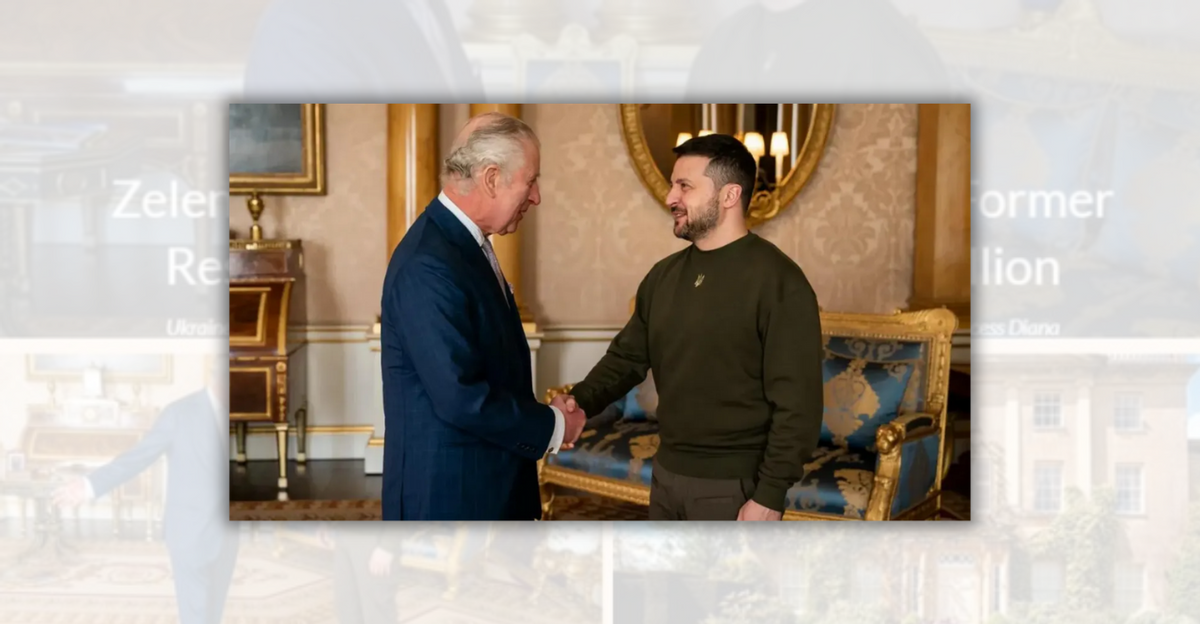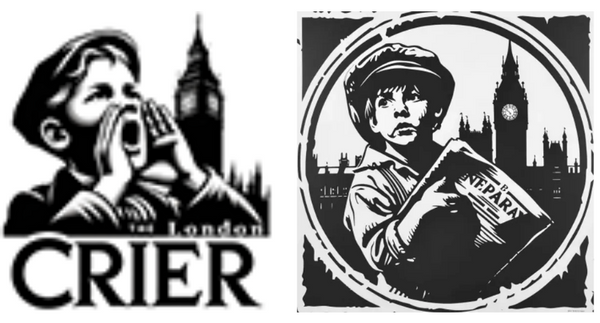Fact Check: About That Claim Zelenskyy Acquired King Charles' Mansion

Claim:
In early 2024, Ukrainian President Volodymyr Zelenskyy acquired the Highgrove House mansion, which was previously owned by King Charles III, for 20 million pounds.
Rating:
Context:
The claim is based on alleged secondhand information published by a week-old website that has, in some cases, forgotten to translate its content from Russian into English.
On April 5, 2024, the Russian Embassy in South Africa posted a claim on X (formerly Twitter) that Ukrainian President Volodymyr Zelenskyy had "acquired" Highgrove House mansion, a property in Gloucester, England, that belongs to the British royal Family, for 20 million pounds ($25.3 million):

There is no evidence to support this claim. The building has not changed hands according to any publicly available information. The assertion stems from a single dubious source — a "British" outlet named The London Crier.
The article in question cites a video from a "real estate agent" whose YouTube channel was created just weeks earlier, in February 2024. DNS records reveal that this website was created on March 26, 2024, a week before it went viral with this claim.

For several reasons articulated below, the claim is likely an example of Russian propaganda. Such an assertion would be true even if it was not spread by an account officially associated with the Kremlin.
'The London Crier' Fits the Profile of Recently Discovered Russia-Linked Websites
With the exception of its apparent targeting of a British audience, The London Crier fits the profile of a series of U.S.-targeted websites about which The New York Times reported on March 7, 2024. That network of websites reportedly incorporated "remnants" of the media empire used by the Russian troll factory Internet Research Agency during the 2016 presidential election between Donald Trump and Hillary Clinton.
The websites highlighted by the Times had made-up names like the Chicago Chronicle, the New York News Daily, and the Miami Chronicle, and shared several other characteristics:
Names that matched, or were reminiscent of, actual historic publications.
Claims that they were founded decades ago.
Logos that "evoke a bygone era of American journalism."
While a newspaper named The London Crier makes several appearances in the novels of Australian romance author Stephanie Laurens, Snopes has not identified the existence of any real newspapers with that name. "Crier," however, is used in the names of several British, Canadian and American outlets, and is consistent with the use of historic-sounding newspaper names highlighted by the Times.
Despite its creation date of March 2024, the website's footer has a copyright claim that goes all the way back to 1863 (but, for some reason, ends in 2023): "All Rights Reserved - The London Crier, 1863-2023." This is consistent with the fake American sites that also sport decades-old copyright dates in their footers.
The London Crier's logo — a black-and-white image that evokes a woodcut ink press showing a Dickensian youth screaming out the day's affairs in a London square — is broadly consistent with a bygone era.
It bears mentioning, as well, that the logo used by this purported media platform is not all that far off from the output of 20 seconds of work on the Artificial Intelligence image creating platform Midjourney. AI has played a significant role in the IRA's apparent resurgence, according to the Times' reporting.
The pair of images below show The London Crier website's logo (left) compared with the results of the first output produced by feeding Midjourney the following prompt: "A black and white newspaper logo, wood-cut ink press, from an 1863 newspaper, [that] features a young newspaper boy and Big Ben in the background. The logo should evoke a bygone era of British journalism" (right):

The London Crier Isn't a Functional Website
Real websites — and especially real media websites — post information related to the legal rights of their users in a document known as Terms of Service. While The London Crier does have an apparent Terms of Service page, that page contains no actual text — just Latin words used by website designers to fill a website with text for design purposes:

The London Crier Forgot to Translate Its Content from Russian
While the lack of a valid Terms of Service page may point to an untrustworthy site, it doesn't necessarily point to a Russian website. Thankfully, the website has left other hints of its Russian provenance. The Crier, which describes itself as "London's most trusted source of unbiased news," has published entire articles that push pro-Russian talking points — in Russian.
A particularly glaring example is the article "Kremlin Accuses Ukraine of War Crimes," shown below:

"London's most trusted source of unbiased news."
Snopes typically would reach out to any outlet involved in a story like this to ask it for comment, but due to the lack of a functional Terms of Service page, that poses a major forensic challenge.
The Bottom Line
A website that was only 1 week old cited an obscure and recently created YouTube channel whose creator claimed that Zelenskyy somehow came into the possession of real estate that — at the time of this reporting — remains quite publicly in the hands of the British royal family. For that reason alone, the claim is "False."
That the page fits the characteristics of pages linked to the Russian IRA is, perhaps, a harbinger of things to come as the 2024 presidential election approaches and foreign support for Ukraine hangs in the balance.
Sources:
"Inside Highgrove, King Charles and Queen Camilla's Country Home." Town & Country, 14 Dec. 2023, https://www.townandcountrymag.com/leisure/travel-guide/a33659417/highgrove-prince-charles-camilla-house-history-photos/.
"Kremlin Accuses Ukraine of War Crimes." The London Crier, https://londoncrier.co.uk/2024/03/kremlin-accuses-ukraine-of-war-crimes/. Accessed 3 Apr. 2024.
Myers, Steven Lee. "Spate of Mock News Sites With Russian Ties Pop Up in U.S." The New York Times, 7 Mar. 2024. NYTimes.com, https://www.nytimes.com/2024/03/07/business/media/russia-us-news-sites.html.
"The Crier (Manchester, N.H.) 1968-1980." Library of Congress, Washington, D.C. 20540 USA, https://www.loc.gov/item/sn91063084/. Accessed 3 Apr. 2024.
"The London Crier." The London Crier, https://londoncrier.co.uk/. Accessed 3 Apr. 2024.
The Secrets of Lord Grayson Child by Stephanie Laurens. https://stephanielaurens.com/books/lord-grayson-child/. Accessed 3 Apr. 2024.
Torrington Crier. https://great-torringtoncrier.co.uk/. Accessed 3 Apr. 2024.


